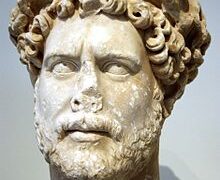Noam Chomsky In Doctrines and Visions, Chomsky alludes to notion that there are, at any one time, only a minority of men capable of ruling since most men are beasts. Since the Revolution in England in the seventeenth century, democracy hasn’t been about the multitude of “beasts in men’s shapes” but rather the concentration of power in the hands of the few. These “men of best quality” serve to ensure that “a system of elite decision-making and public ratification” is enshrined: “polyarchy” is the term. How is the multitude to be put in its place. One way is to manufacture consent, that “public ratification.” People must believe in and willingly adhere to what their leaders are telling them. Walter Lippman wrote that a “specialized class” of leaders must be empowered so as to direct the public who, without these leaders wouldn’t manage their own affairs. THe public, according to Lippman are ignorant and meddlesome; leaders of men are trained “in the law schools and law offices and in business” so as to “live free of the trampling and the roar of a bewildered herd…ignorant and meddlesome outsiders.” Niccolo Machiavelli’s The Prince This famous and supposedly precocious political thinker Machiavelli, whose name is nowadays an adjective meaning anything from “devious” to “self-serving,” wrote The Prince as a CV for a job in the administration of Lorenzo De’ Medici of Florence. In it, he says more or less that he has an understanding that men generally do not have and that, while he has access to knowledge and insight that may be unsavoury, it is no less essential for it. Machiavelli advises Lorenzo that “there are two ways of fighting: by law or by force.” The first is preferable but sometimes ineffective. Leaders must derogate to...
Manchester United?
posted by Cloud
There’s a lot today about the Manchester bomb. The Irish Times carries front-page photos of two pretty young girls, Saffie Rose Roussos (8) and Georgina Callander (18) who were both murdered by the suspected bomber, twenty-two year-old Salman Ramadan Abedi, “a Manchester-born son of Libyan refugees.” Simon Carswell writes of how Nadia Abdulmalek and Deborah Henley “embraced and cried among a crowd of thousands at Manchester Town Hall at a vigil” even though culturally they are very different. Donald Trump called the bomber a “loser.” Fintan O’Toole writes that “mass murder is easy and the more outrageous it is the easier it gets. Flesh is soft and easily shredded. Lives are fragile and easily shattered. Decency, humanity, compassion are flimsy and precarious. The barriers that separate earth from hell and civilization from barbarism are porous and full of holes…” “Porous and full of holes”? The editorial says that “even by the standards of the decade…[Manchester] was an atrocity of singular, unspeakable cruelty.” (Goggy used to pronounce it “cruelity” with an added syllable.) Britain, it goes on, “must again confront two grim realities: that the threat of indiscriminate atrocities has become a regular feature of daily life in the world’s major cities, and that free societies cannot entirely eliminate that threat without undermining the very freedoms that define them.” I’m reminded of something Solzenitsyn wrote about America, something about why there was so much (or any) joy and triumph. I’m thinking of The Proud Tower too and how more than a century ago the people we now called Islamic terrorists were known as Anarchists and hoped to changed society or undo it altogether with a single deed, one that would initiate a further series of earth-shattering events and a total realignment of forces and structures....
The face of evil? The Rosenberg Executions...
posted by Cloud
I’m reading the death sentence handed down to Julius and Ethel Rosenberg by Judge Irving Kaufman in April 1951. The Rosenbergs were accused of spying, of passing nuclear secrets to the Russians. The judge argues that, by his own admission, Julius Rosenberg got a better and fairer trial in America than he could have hoped for in Russia. This galls Kaufman who says that “It is to America’s credit that it took the pains and exerted the effort which it did in the trial.” Still, the defendants devoted themselves to “the Russian ideology of denial of God, denial of the sanctity of the individual, and aggression against free men everywhere.” No wonder then that Judge Kaufman considers the crime for which the Rosenbergs are about to be sentenced to death “worse than murder.” After all, as he argues, “Plain deliberate contemplated murder is dwarfed in magnitude by comparison with the crime you have committed.” The charges expand as he speaks, getting so large as to blame the Rosenbergs for the death toll (at that stage 50,000) in the Korean War: “I believe your conduct in putting into the hands of the Russians the A-bomb years before our best scientists predicted Russia would perfect the bomb has already caused, in my opinion, the Communist aggression in Korea.” And it gets worse because “who knows but that millions more of innocent people may pay the price of your treason.” Julius and Ethel Rosenberg went to the electric chair in June 1953. Before they died they wrote letters to each other, to their children. In one letter Julius wrote to his sons Michael and Robert. To Michael he wrote: “I want to tell you that I am confident in the end we will be set free...



